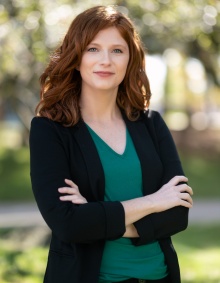“Community is central to my work as a social work educator and scholar. I believe community partnerships and rich practicum education experiences cement student learning. In my research, I use a participatory approach that yields translatable findings for local communities.”
Education
- PhD, Social Work, University of North Carolina at Chapel Hill (2015)
- MSW, University at Buffalo (2011)
- BA, Health and Human Services, University at Buffalo (2011)
Professional/Research Interests
Youth violence prevention; community-based participatory research; community-centered violence prevention; community partnership; practicum education
Biography
Katie Stalker, PhD, MSW is an associate professor and director of field education at the University at Buffalo School of Social Work. She received her PhD from the University of North Carolina at Chapel Hill in 2015 where she trained as a pre-doctoral fellow in youth violence prevention. Prior to that, she received her BA and MSW from the University at Buffalo.
Stalker’s research focuses on youth violence prevention across the adolescent social ecology (i.e., juvenile justice, school, family settings) and implementation science for community-centered prevention. One significant aspect of her youth violence prevention work focuses on the role of the teen court model in diverting non-chronic juvenile offenders from traditional juvenile justice system processing to a program in which a peer jury of youth develop consequences. In her line of research focused on community-centered prevention, Stalker uses a community-based participatory research approach in which she examines social problems and co-develops solutions in local contexts through partnerships with community residents, agencies and other stakeholders.
